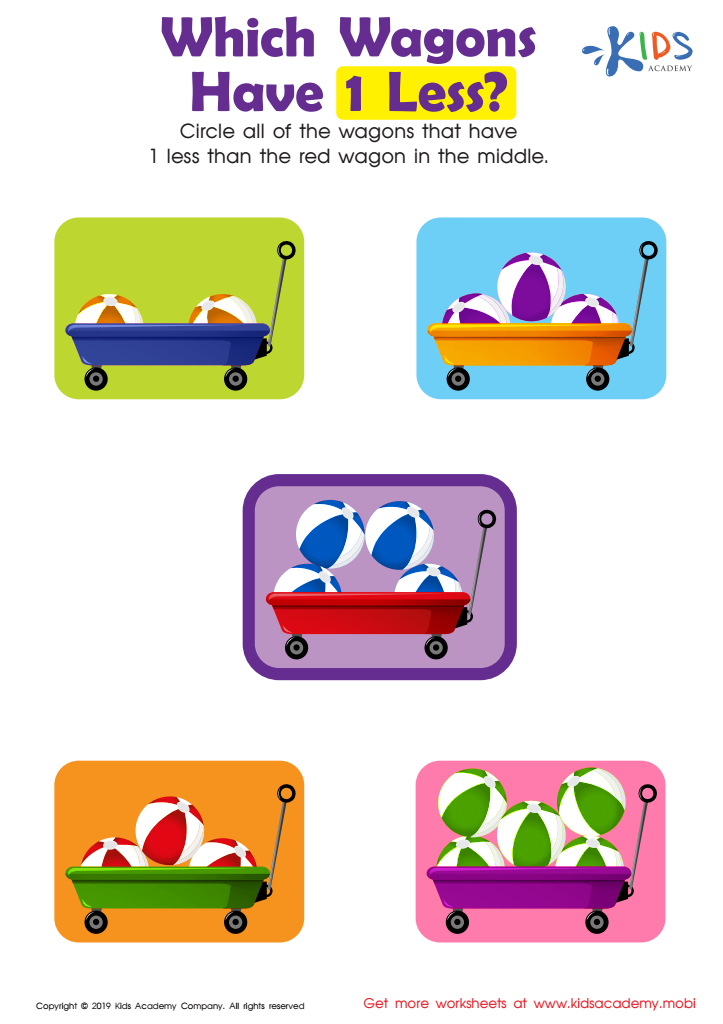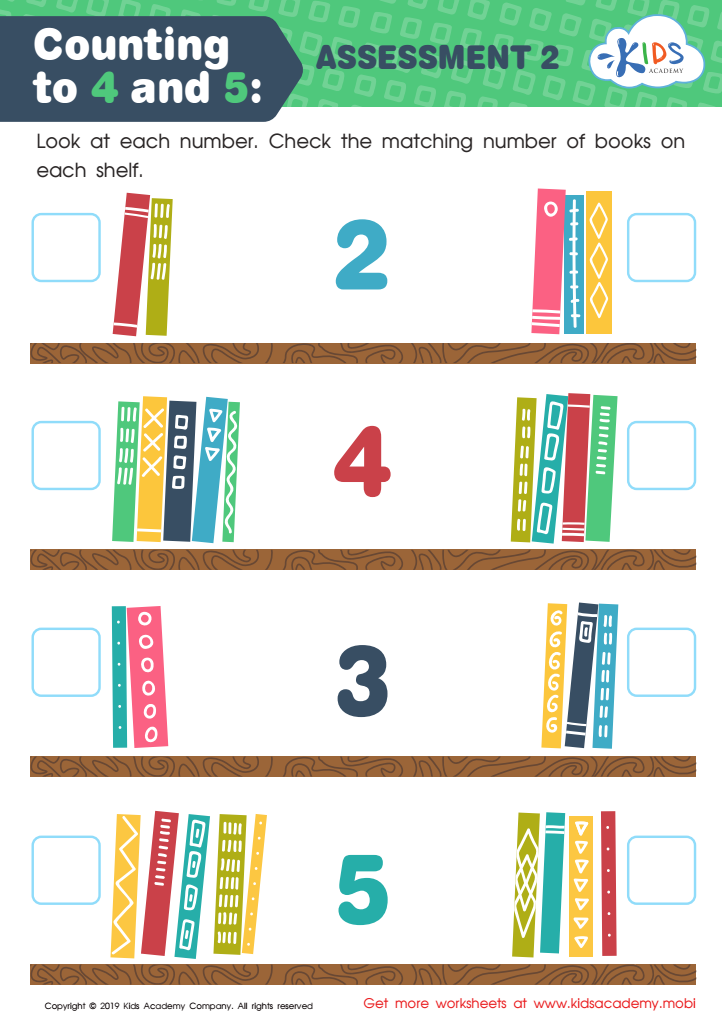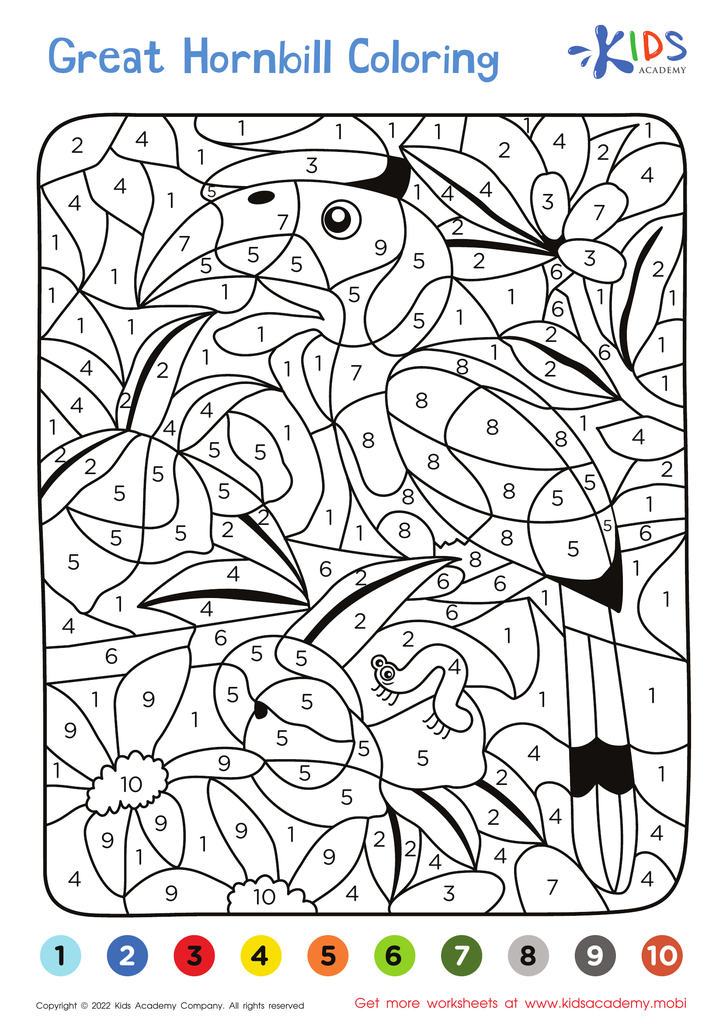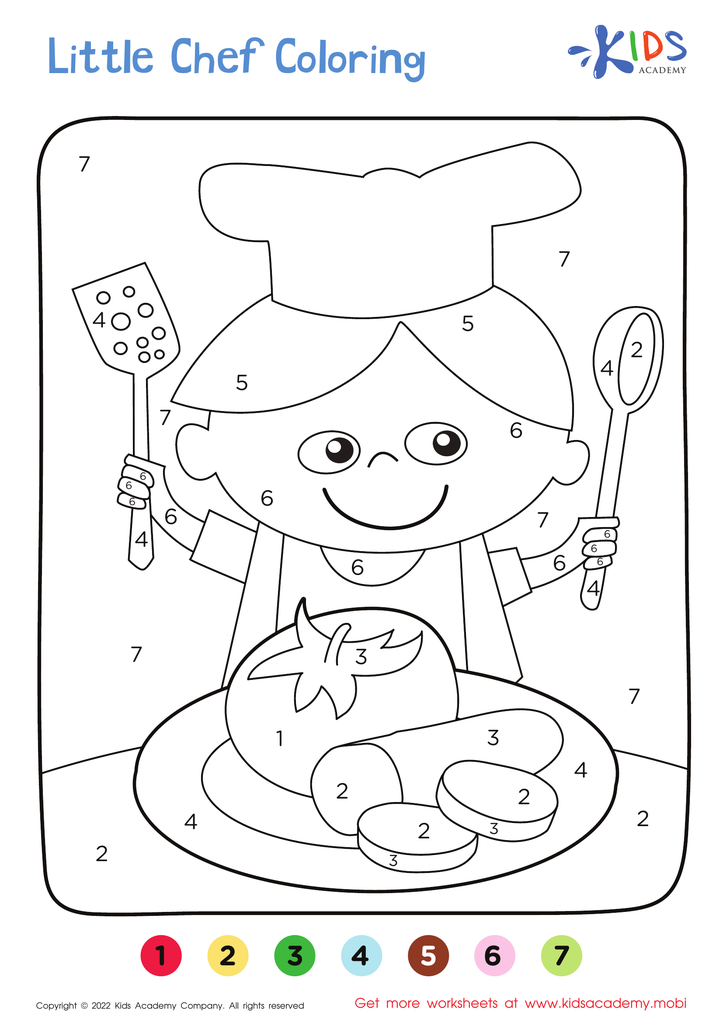Basic counting skills Numbers 0–10 Worksheets for Ages 5-9
5 filtered results
-
From - To
Welcome to our "Basic Counting Skills: Numbers 0–10 Worksheets for Ages 5–9!" page, expertly crafted to help young learners build a strong foundation in counting. Our engaging and visually appealing worksheets are perfect for children as they practice recognizing, writing, and counting numbers from 0 to 10. Through interactive activities, kids will enhance their number sense, develop problem-solving skills, and boost their confidence in math. Ideal for classroom use or at-home practice, these resources cater to various learning styles, ensuring every child thrives. Explore our collection today and watch your child's counting skills flourish!


Which Wagons Have 1 Less? Worksheet


Counting to 4 and 5: Assessment 2 Worksheet


Great Hornbill – Coloring by Numbers


Twinkle, Twinkle, Little Star – Coloring by Numbers


Little Chef – Coloring by Numbers
Basic counting skills between numbers 0–10 serve as the foundation for a child's future mathematical learning and cognitive development. For children aged 5-9, mastering counting is more than just memorizing numbers; it helps them understand the concepts of quantity, order, and the relationship between objects. These skills are essential for their success in more complex math problems later on, such as addition, subtraction, and place value.
From a psychological perspective, learning to count helps develop children's memory, attention, and problem-solving skills. These basic numeric abilities facilitate cognitive operations like identifying patterns and making comparisons, which are crucial for general intellectual growth.
Moreover, grasping these fundamental skills in early childhood empowers children with confidence. It strongly influences their attitude towards math and academics overall. Educators and parents play a critical role by encouraging and creating opportunities for counting in everyday activities, such as counting toys, snacks, or steps. This not only makes learning fun but also demonstrates the practical importance of numbers in daily life.
Developing strong foundational numeracy skills also helps children meet educational standards and facilitates smooth transitions between academic grade levels. Early intervention to ensure well-established counting abilities contributes significantly to a child's long-term academic trajectory and overall love for learning.
 Assign to My Students
Assign to My Students
















